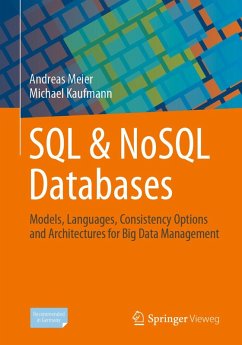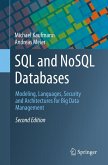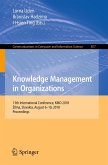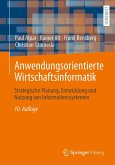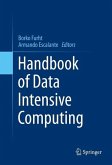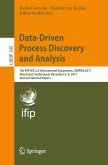This book introduces readers to the field of relational (SQL) and non-relational (NoSQL) databases. The main topics covered are data management, data modeling, query and manipulation languages, consistency, privacy and security, system architectures and multi-user operation. The book also provides an overview of post-relational and non-relational database systems. In addition to classic concepts, important aspects of NoSQL databases are discussed, such as map / reduce, distribution options (fragments, replication), and the CAP theorem (Consistency, Availability, and Partition tolerance). The book will benefit students looking for an introduction to the area of SQL and NoSQL databases, as well as practitioners, helping them better understand the strengths and weaknesses of relational and non-relational approaches and developments in connection with big data applications.
Content
Data Management - Data Modeling - Database Languages - Ensuring Data Consistency - System Architecture - Post-Relational Databases - NoSQL Databases
The authors
Andreas Meier is a former member of the Faculty of Economics and Social Science and was a Professor of Information Technology at the University of Fribourg. He specializes in electronic business, electronic government, and information management. He is member of the GI (Gesellschaft für Informatik), IEEE Computer Society, and ACM.
Michael Kaufmann is a Professor of Data Science and Big Data at the School of Information Technology, Lucerne University of Applied Sciences and Arts. He is also the coordinator of the university's Data Intelligence research team, which develops and studies methods and technologies for intelligent data management.
Content
Data Management - Data Modeling - Database Languages - Ensuring Data Consistency - System Architecture - Post-Relational Databases - NoSQL Databases
The authors
Andreas Meier is a former member of the Faculty of Economics and Social Science and was a Professor of Information Technology at the University of Fribourg. He specializes in electronic business, electronic government, and information management. He is member of the GI (Gesellschaft für Informatik), IEEE Computer Society, and ACM.
Michael Kaufmann is a Professor of Data Science and Big Data at the School of Information Technology, Lucerne University of Applied Sciences and Arts. He is also the coordinator of the university's Data Intelligence research team, which develops and studies methods and technologies for intelligent data management.
Dieser Download kann aus rechtlichen Gründen nur mit Rechnungsadresse in A, B, BG, CY, CZ, D, DK, EW, E, FIN, F, GR, HR, H, IRL, I, LT, L, LR, M, NL, PL, P, R, S, SLO, SK ausgeliefert werden.

